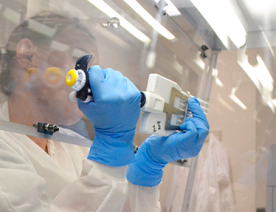
Americans favor the use of gene editing to prevent disease or disabilities, while there is strong opposition to using the technology to change a baby’s physical characteristics, such eye color or intelligence. Support for eradicating disease and disabilities was strong regardless of party identification, education or religious preference. The same holds true for the opposition to altering genes in order to change physical features or capabilities.
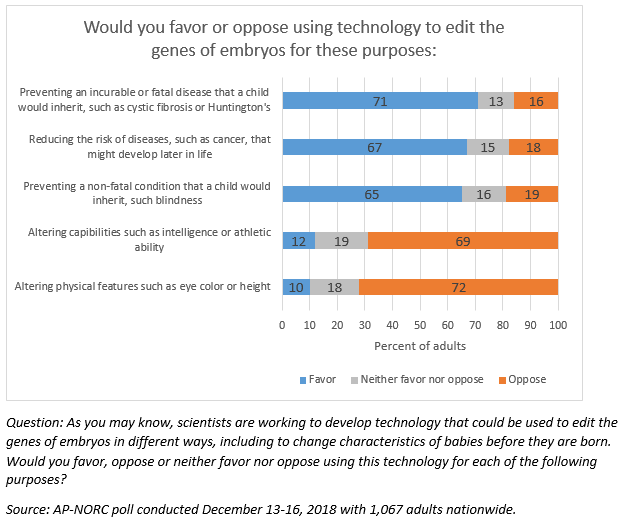
Americans hold similar views about the ethics of gene editing. About 6 in 10 consider editing the genes of embryos for the purpose of preventing or reducing the risk of disease to be morally acceptable. Fifty-four percent say using the technology to prevents a non-fatal condition such as blindness as morally acceptable. Two-thirds say it is morally unacceptable to use gene editing to change a baby’s physical features or characteristics.
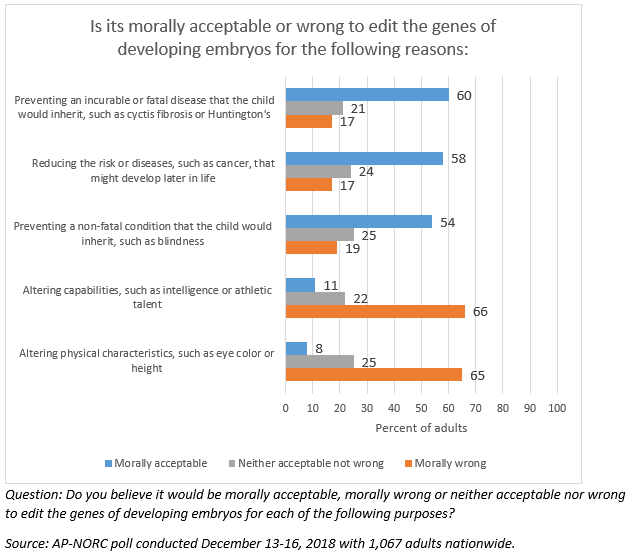
What about altering an adult’s genetic material without changing the genes of their offspring? The idea of using gene editing technology to prevent or cure a genetic disorder in an adult is supported by 56 percent, opposed by 17 percent, and 27 percent neither favor nor oppose.
While Americans favor using gene editing to deal with physical ailments, there is less support for the use of taxpayer money to finance testing on human embryos to develop the technology. Overall, 48 percent oppose federal funding to test gene editing technology, while 26 percent favor it and 25 percent neither favor nor oppose. Republicans are particularly against using government money for the development of gene editing.
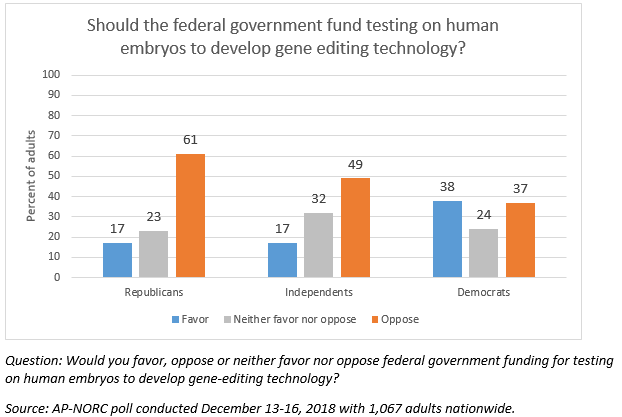
Regardless of support for the technology, there are some concerns about possible ramifications. Fifty-two percent say the unethical use of gene editing is very likely, and 45 percent think it’s very likely the technology would have unintended effects on human evolution. Few think it’s likely that most people would be able to afford the technology.
Most Americans say it is at least somewhat likely that the development of gene editing technology will lead to further medical advances, eliminate many genetic illnesses, and be adequately tested.
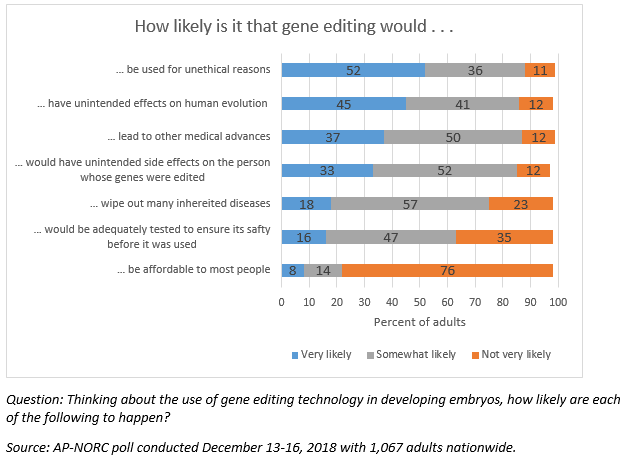
The nationwide poll was conducted December 13-16, 2018 using the AmeriSpeak® Panel, the probability-based panel of NORC at the University of Chicago. Online and telephone interviews using landlines and cell phones were conducted with 1,067 adults. The margin of sampling error is plus or minus 4.1 percentage points.



